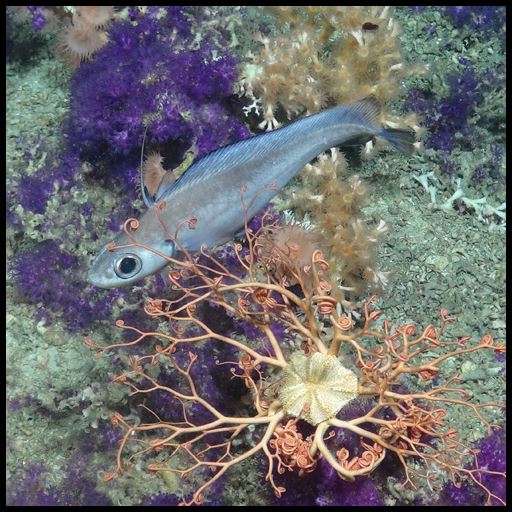Scientists call for decade of concerted effort to enhance understanding of the deep seas
-
Date
Wed 25 Nov 20

The deep seas – vast expanses of water and seabed hidden more than 200 metres below the ocean surface to depths up to 11,000 metres – are recognised globally as an important frontier of science and discovery. But despite the fact they account for around 60% of Earth’s surface area, large areas remain completely unexplored, yet the habitats they support impact on the health of the entire planet.
Now an international team of scientists spanning 45 institutions in 17 countries, has called for a dedicated decade-long programme of research to greatly advance discovery in these remote regions.
The programme – which scientists have named Challenger 150 – will coincide with the United Nations Decade of Ocean Science for Sustainable Development, which runs from 2021-2030.
Challenger 150 will generate new geological, physical, biogeochemical, and biological data through a global cooperative of science and innovation, including the application of new technology. These data will be used to understand how changes in the deep sea impact the wider ocean and life on the planet.
Among its key areas of focus are to build greater capacity and diversity in the scientific community, acknowledging the fact that existing deep-sea research is conducted primarily by developed nations with access to resources and infrastructure.
The programme will use this new knowledge of the deep to support regional, national, and international decision-making on deep-sea issues such as mining, hydrocarbon extraction, fishing, climate mitigation, laying of fibre optic cables and conservation.
The international team presented the rationale behind the call for action in a comment article in Nature Ecology and Evolution, simultaneously publishing a detailed blueprint of how the actions can be best achieved in Frontiers in Marine Science.
Led by members of the Deep-Ocean Stewardship Initiative (DOSI) and the Scientific Committee on Oceanic Research (SCOR), the authorship reflects both the gender and geographical diversity such a programme demands, with authors from the six inhabited continents of the World.
They note that the UN Decade provides an unrivalled opportunity to unite the international science community to deliver a giant leap in our knowledge of the deep seas.
Essex’s Director of Marine Biology Dr Michelle Taylor, who is also one of the co-authors on the papers, said: ““Its almost 150 years since the epic Challenger voyage started investigating our deep-sea areas in earnest. In all those decades, although progress has been made, the deep sea is still considered the least explored, least understood, habitat on Earth. Its time for an international deep-sea focus. We suggest a decade of new collaborative science and innovation to generate global geological, physical, biogeochemical, and biological deep-sea data to support new deep-sea issues such as mining, hydrocarbon extraction, fishing, climate mitigation, laying of fibre optic cables and, of course, conservation. Its time for Challenger 150."
Kerry Howell, Professor of Deep-Sea Ecology at the University of Plymouth (UK) and lead author of the research publications, said: “The deep seas and seabed are increasingly being used by society, and they are seen as a potential future asset for the resources they possess. But managing these resources sustainably requires that we first understand deep-sea ecosystems and their role in our planet, its people and its atmosphere. Our vision is for a 10 year programme of science and discovery that is global in scale and targeted towards proving the science to inform decisions around deep-ocean use. We believe the United Nations Decade of Ocean Science provides the perfect opportunity to achieve that.”
Dr Ana Hilario, Researcher at the University of Aveiro (Portugal) and co-lead of the DOSI and SCOR Decade working groups, added: “The Decade also provides the opportunity to build a long-term programme for training and capacity building in ocean sciences. With Challenger 150, we aim to train the next generation of deep-sea biologists and focus on training scientists from developing countries,but also early stage scientists from all nations. Such training will create a network of enhanced capacity that will allow countries to exercise their full role in international discussions on the use of ocean resources within and outside of their national boundaries.”
Image courtesy of the NERC funded Deep Links Project - Plymouth University, Oxford University, JNCC, BGS




